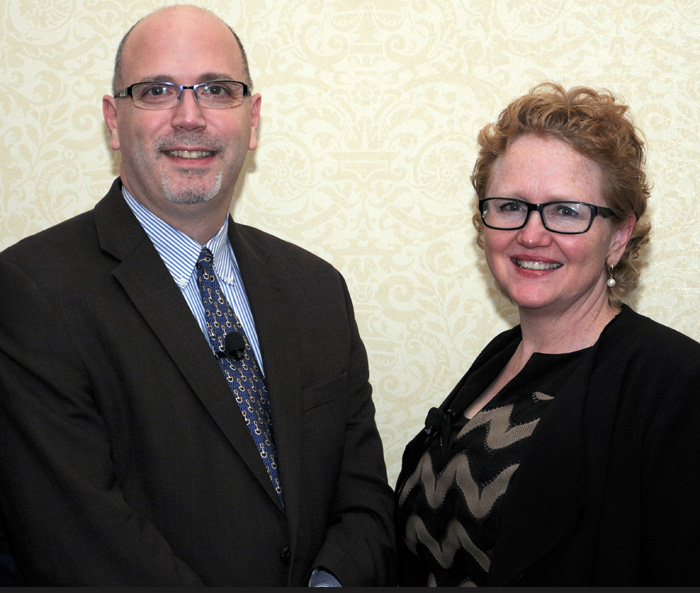USAISR Scientists Share Combat Casualty Care Research

Two research scientists from the U.S. Army Institute of Surgical Research were selected to be among several keynote speakers at The Health Cell's 2015 State of the Industry event Feb. 10 in San Antonio, Texas. The annual event is designed to promote professional development and collaboration in San Antonio's healthcare and bioscience sector. The USAISR's Drs. Heather Pidcoke and Jose Salinas gave an overview of the Institute and spoke about their interests in blood and military critical care research.
"Military healthcare is a significant sector in San Antonio both economically and in terms of innovation," said Health Cell co-founder Beth Eby. "An event designed to represent the diversity of the local healthcare and bioscience industry would not be complete without it."
A research physiologist and deputy task area manager of Coagulation and Blood Research, Pidcoke stressed that the event was an excellent opportunity to make connections with other scientists in San Antonio while showcasing the impact of military research on trauma care.
"Multiple people approached me after our talk to tell me how impressed they were with the USAISR's mission and impact," added Pidcoke. "They also expressed their appreciation for the work that is done here in support of our injured military personnel."
Salinas, the comprehensive intensive care research, single/multiple organ support, and vital tissue preservation task area manager, also said that the event gave him and Pidcoke the opportunity to showcase the research that the military is doing in San Antonio and provide the audience a different perspective on medical issues faced by the military community.
"I hope that the attendees were able to appreciate the challenges faced by the Department of Defense in taking care of severely wounded warfighters and the role that the USAISR plays in addressing these issues," said Salinas.
"Military medicine's special characteristics and its high level of integration brings a unique perspective to our events and encourages attendees to challenge assumptions, seek out new collaborators and create new models," Eby said. "As a result of the participation of the USAISR, scientist attendees got a peek inside the buildings they usually only see from the highway and learned the stories behind what they see in the news. Both the scientists and the wounded warriors live among us, so understanding their perspective is important to the community."
According to Eby, the Health Cell was founded in 2012 and welcomes all who work in or with healthcare and the biosciences: academic, private sector, non-profit and military. Its monthly events periodically spotlight leaders in military medicine.














